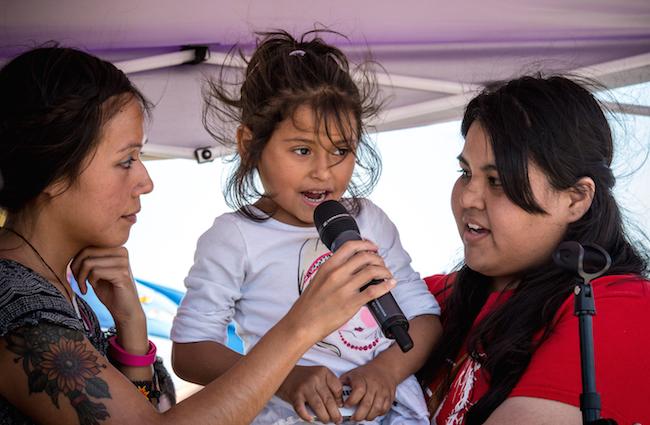
Nara’s article for the latest issue of the NACLA Report describes some of her experiences volunteering as a translator for the CARA Family Detention Pro Bono Project, through which volunteer lawyers have been providing free counsel to individuals seeking asylum in the United States. The South Texas Family Detention Center in Dilley, Nara writes, in fact has a lot in common with a prison, the crucial distinction being that the detainees at Dilley have not committed a crime–they entered the country legally through border patrol checkpoints, and have a right to assert their claims to asylum. They also have a right to access legal counsel, but as Nara’s experience shows, the rules on the books aren’t necessarily being enforced on the ground.
In this episode of NACLA Radio, Helen and Nara discuss the various challenges CARA and other immigrants rights organizations have faced, the process of claiming asylum, and the conditions in which detainees endure while they wait in legal limbo. Nara also provides some useful resources for Naclistas who want to help this important cause. To learn more about CARA and volunteer, check out their website, CARAProBono.org. The Southern Poverty Law Center explains its immigrant justice initiative here, and the Georgia Asylum and Immigration Network (GAIN) is replicating CARA’s model by matching cases with volunteer lawyers in the Atlanta area–learn more about GAIN here.
To learn more about CARA, click here.
Nara Milanich is an associate professor of history at Barnard College, Columbia University. She is the author of Children of Fate: Childhood, Class and the State in Chile, 1850-1930 (Duke University Press, 2009), co-editor, with Elizabeth Quay Hutchison, Thomas Klubock, and Peter Winn, of The Chile Reader: History, Culture, Politics (Duke University Press, 2013), and is currently writing The Birth of Uncertainty: Testing Paternity in the Twentieth Century (Harvard University Press, 2018). She has served as a volunteer translator at the detention center at Dilley.

